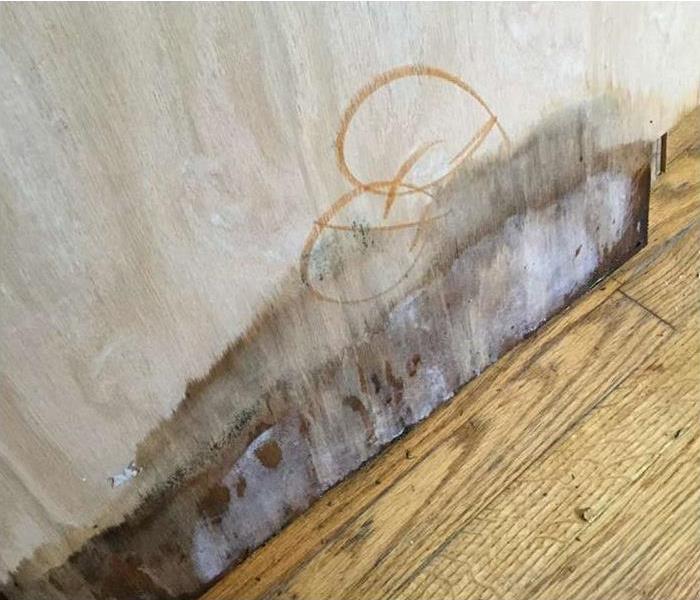Everything You Need to Know About Mold
5/17/2017 (Permalink)
How do you know if you have mold and how should you proceed if you do? We talked to SERVPRO of Morristown, NJ a highly-rated mold prevention and removal company, to get the answers you need...
What causes mold?
Mold is a fungus that is an integral part of the earth’s bio-mass. It consumes and breaks down organic material, like leaves, wood, and plants. The problem is when mold colonizes in our buildings, consumes our building materials, and puts spores into our indoor air. This happens when there is a moisture problem since mold cannot grow without water. When there is enough moisture or humidity for colonization, humans may begin to have problems.
Why is it important to get mold removed?
For the majority of people, exposure to very low concentrations of mold won’t be an issue. However, some spores can create allergies and respiratory-related health problems, and mold growth can also adversely affect property value. Nobody wants to purchase a mold issue. Basement and attic mold may not affect your indoor air quality all the time in the living spaces of your home, but it sure does threaten real estate deals.
That is because the idea of mold can cause panic for a homeowner since "Mold can cause health effects" create structural issues, and seriously affect property value.
What are common causes of mold in homes?
The unfortunate reality is that problematic mold can really pop up anywhere that isn’t dry. Most often mold grows in attics due to roof leaks and poor air circulation, bathrooms that ventilate into the attic rather than outdoors, within crawl spaces because earth or gravel allows moisture and mold spores to move up from the soil, basements flooding from foundation leaks or plumbing leaks, and interior living spaces with leaks, bad windows, and high humidity.
Is there a chance that I have mold and don’t even know it?
Yes. There are four criteria that you should be aware of:
- A musty odor that is caused during the colonization of some fungal species, but can come and go depending on moisture levels and air flow changes.
- Water staining or building materials that have discoloration, which is spreading over time, may be a sign of mold.
- Mold spores that were already present will begin to colonize just 48 hours after a water event.
- If you have allergies or respiratory symptoms that begin to worsen or if you feel worse in certain indoor environments, but better when you leave that space, you may have mold.
What is the removal process like?
The mold remediation process (providing a remedy to a known mold issue) involves four things...
1) Finding the source of the water leak, the moisture problem that is creating a hospitable environment for mold growth,
2) Killing the fungi,
3) Removing dead mold,
4) Then protecting against future mold growth/colonization.
In order to do this, mold specialists have a multi-step process to:
- Contain the work area and apply multiple negative air pressure HEPA air purifiers to prevent cross-contamination.
- Spray professional quality EPA registered anti-microbial to suspend and kill mold spores.
- Remove affected building surfaces.
- Bag and dispose of all mold infected items properly.
- Treat cavities / underlayment, and dehumidify.
- Abrasively remove dead loose mold.
- Apply professional quality EPA registered protective sealer.
- Perform clearance testing.
- Remove containment materials.
Why is it important to hire a professional?
It is always a good idea to consult with a mold professional. If there’s an issue you can tackle yourself, a professional will give you recommendations about how to do so. It may be too much for a homeowner to keep safe while preventing cross contamination, killing mold, removing it and preventing new mold from growing, so that is why a professional is highly suggested, to that you can get things done properly and prevent future problems from making your current mold issue into an ongoing mold problem.
When treating attics and crawl spaces needing mold remediation, it is important to treat ALL decking, joists and attic trusses. Mold removal may also involve demolition of drywall, paneling, flooring, ceiling tile, cabinets, disposal containers, cleaning and sanitizing HVAC ducts, etc.
Get A Mold Removal FREE Quote From SERVPRO of Morristown, NJ by calling (800) 734-3213
This article was adapted from: https://www.thumbtack.com/blog/



 24/7 Emergency Service
24/7 Emergency Service
